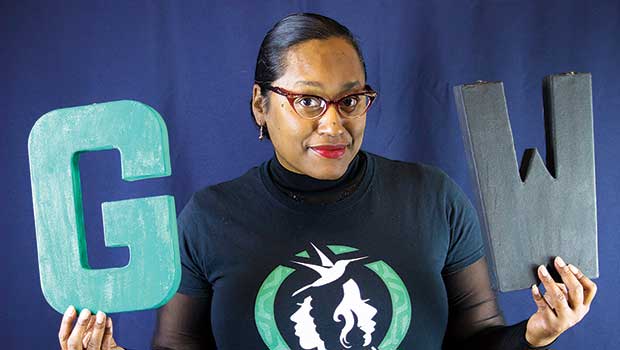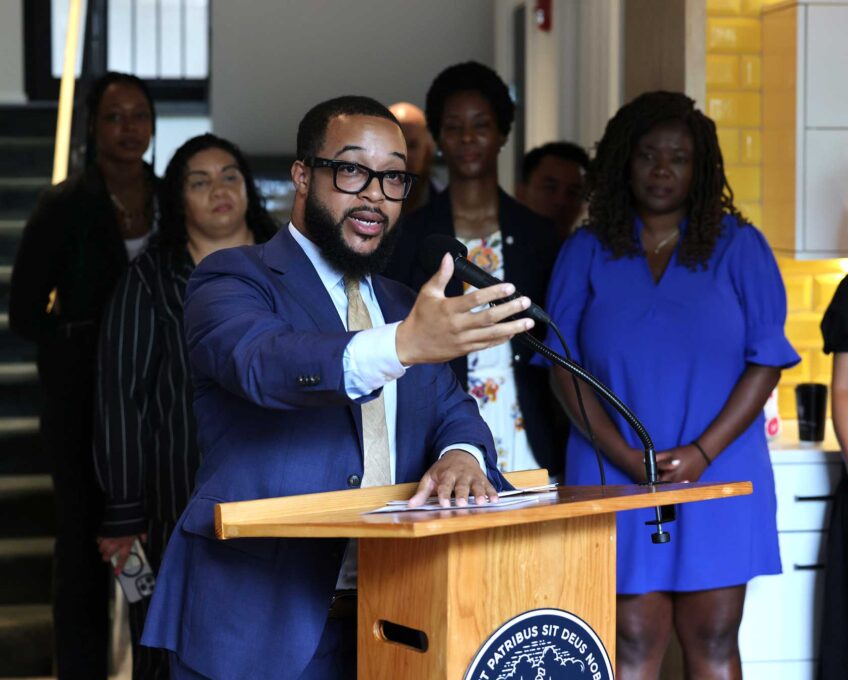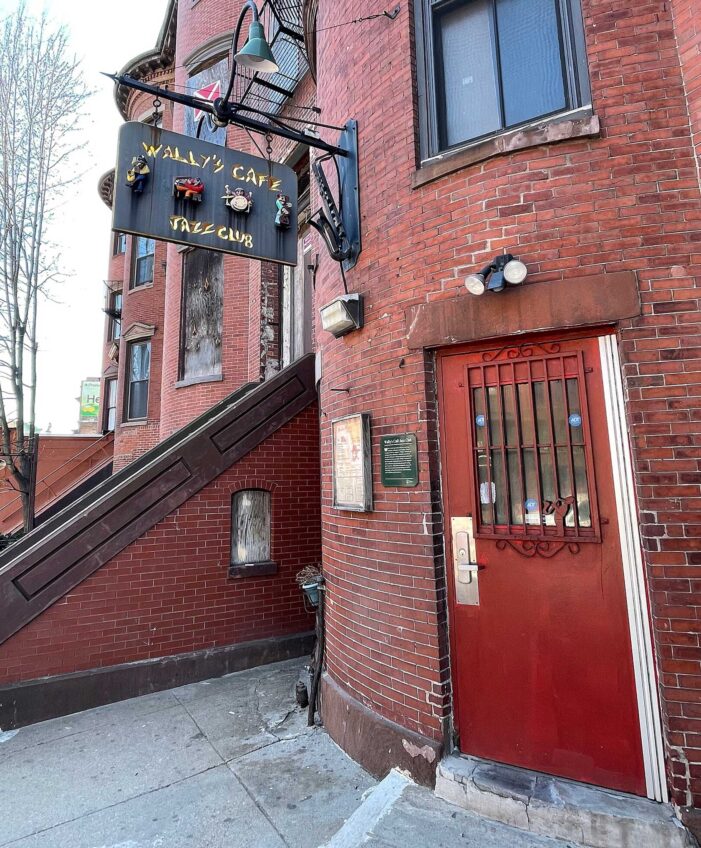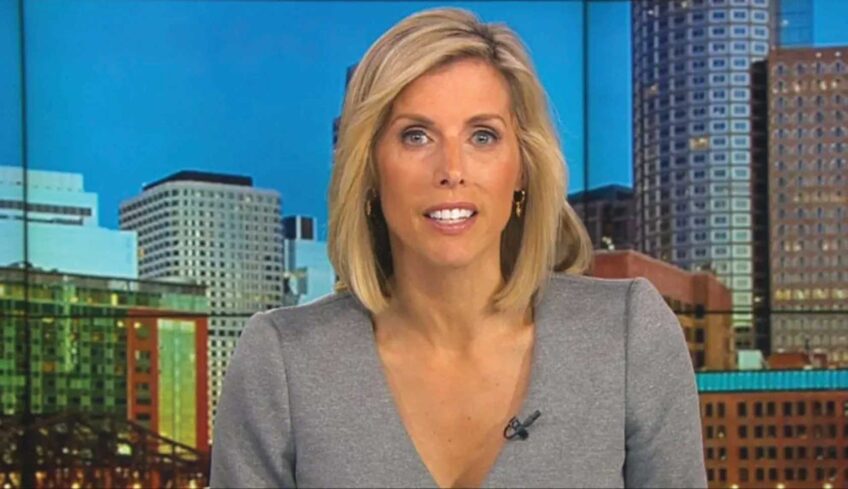
Alina Lopez Thomas, founder and creative director of GROWN Women, knows that a productive working life can’t come to a halt after a career setback, and needn’t end at the traditional retirement age.
On the Web
GROWN Women: https://grownwomenbiz.com
With her emerging company, founded in 2016, she aims to help women already experienced in the world of work identify and use their accumulated skills to become entrepreneurs.
“They’ve come out of a career or retirement, they’re looking at themselves and saying, ‘I have all these skills, now I’d like to transfer them into my own business and establish myself,’” Lopez Thomas says.
She sees many women in their 40s, 50s and even 60s looking to redirect their energy into something new, she says.
“A lot of women feel stuck,” she says of women in midlife facing a downward slope in their career arc. “They don’t want to just not work, they don’t just want to be at home. Now they want to do their passion. And not necessarily work for someone else — they want to do their own thing.”
A setback, a new start
Lopez Thomas knows firsthand the dilemma of wondering what to do next when a long career ends. She worked for 21 years at Massachusetts Department of Early Education and Care, overseeing the opening and licensing of new child care facilities until 2016. Recounting her trajectory there, she says she rose from licenser to supervisor to regional director, along the way completing a bachelor’s degree in business in her 30s.
On the GROWN Woman website and in conversation, she is frank about having experienced a painful “You’re fired!” moment. She struggled for a time before mustering the confidence to start anew.
She describes a sort of reverse arc, a steep dip downward and then a rising up.
“It went from sense of fear and frustration, then drive and ambition,” she says, “then ‘Pick yourself up by the bootstraps, and now help others — you’re a grown woman, you can do this.’”
In her earlier career, she had been a resource for people opening child care facilities, making sure they knew and complied with all the quality assurance regulations and understood staffing and other elements of getting a business off the ground. The role gave her opportunities to be an adviser, speaker, trainer and consultant on business start-ups. Now, she can direct these skills to helping women launch care facilities and other businesses.
Connecting and advising
The “GROWN” in her company name is an acronym for Greater Resource of Women Networks, and one goal is to provide time and space for Boston area women to gather and build networks of accomplished, like-minded women with whom they can share and learn.
GROWN Women operates out of the Quincy Innovation Center. Besides making it easier to hold meetings and events, Lopez Thomas says she knows herself well enough to realize that having an outside-of-home office space would be more energizing.
“I’m used to being out — it gives me head space,” she says.
She is mostly a “solo-preneur” so far, functioning as a coach and consultant to clients, but has cultivated partnerships with two other women: Michaiah Lopez, who will work to help GROWN Women assist and mentor younger women, and Donya Zimmerman, with whom she started the Ultimate Biz Conference (UBC), a three-day event for aspiring entrepreneurs and small businesses. The first UBC is set to take place in White Plains, New York in April.
Perpetual student
This accidental entrepreneur embodies the spirit of lifelong learning, in and out of the classroom.
She trained and worked as a union carpenter before she worked for the state. She took business classes while working her way up the ladder in the Early Education and Care department and earned her business degree in 2012 at age 39.
When she lost her job and began thinking about going into business for herself, she took a 10-week business planning course at the Center for Women in Enterprise, followed by other classes, including social media.
Recently, in the interest of being better-equipped to advise people starting home health businesses, she completed her home health aide certification and certified nursing assistant training.
And now, she is pursuing television production training at Boston Neighborhood Network (BNN). Her sights are set on both TV and radio production, in addition to the GROWN Living podcast she recently created.
“I’m getting very excited about broadcasting,” she says. “This is new for me.”
What’s next?
Looking ahead, Lopez Thomas envisions GROWN Women adopting a membership model to help monetize the networking part of the business, and offering a broader set of services, including linking clients to website development and other business startup help.
With her deep expertise in early childcare licensing, staffing, regulations and business planning and her studies in home health care, she is tapping into a sector in which many tasks cannot be outsourced and business opportunities are bound to grow.
“It’s a life cycle — early education and care is the beginning, and home care for the elderly is the other end,” she says.
She also has another business in the works, an early education job board and consultant resource called the National Early Education Hub (NEEHUB).
Doors opening
Lopez Thomas admits she was traumatized when she lost her job, feeling a rug had been pulled out from under her. But now she can appreciate the change it sparked. Hearing her talk, it almost sounds as if the crisis pushed her to where she belonged all along.
“When that door shut, so many doors opened,” she says. “I have met so many other people in so many other niches. I’ve learned about entrepreneurship. In government, the policies are there for you. [But] when you have to create and design everything yourself, it’s a totally different mindset. So it’s been a challenge — but I would never have been at BNN, I would never have taken the course at CWE, I would never have met Donya and started UBC. And now I’m doing a host of different things. I love the innovation and creation I’m able to do now.”






